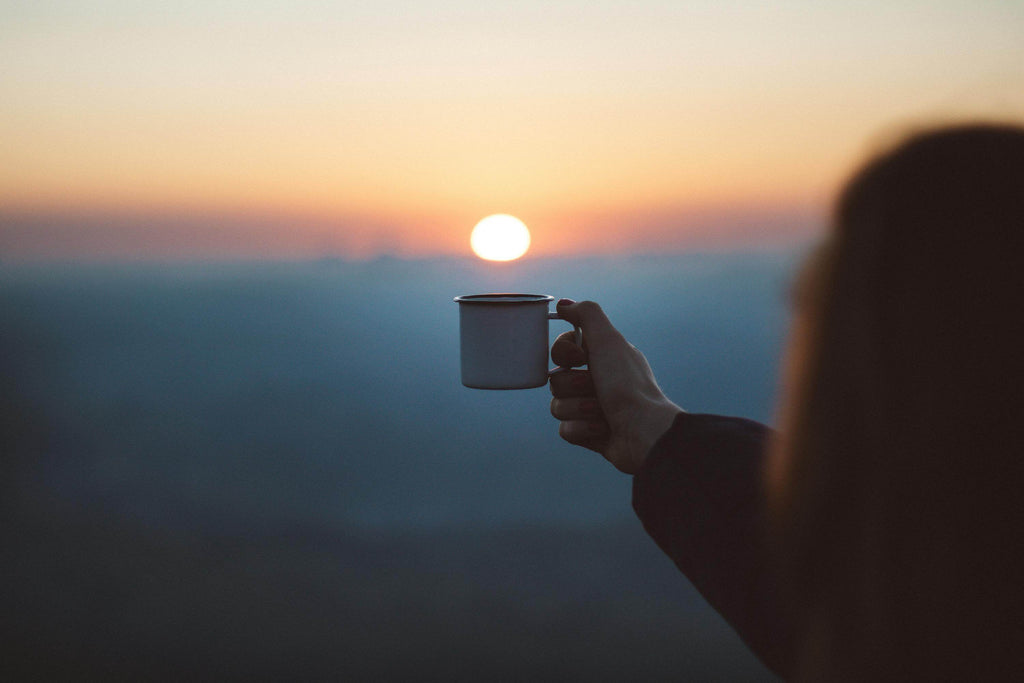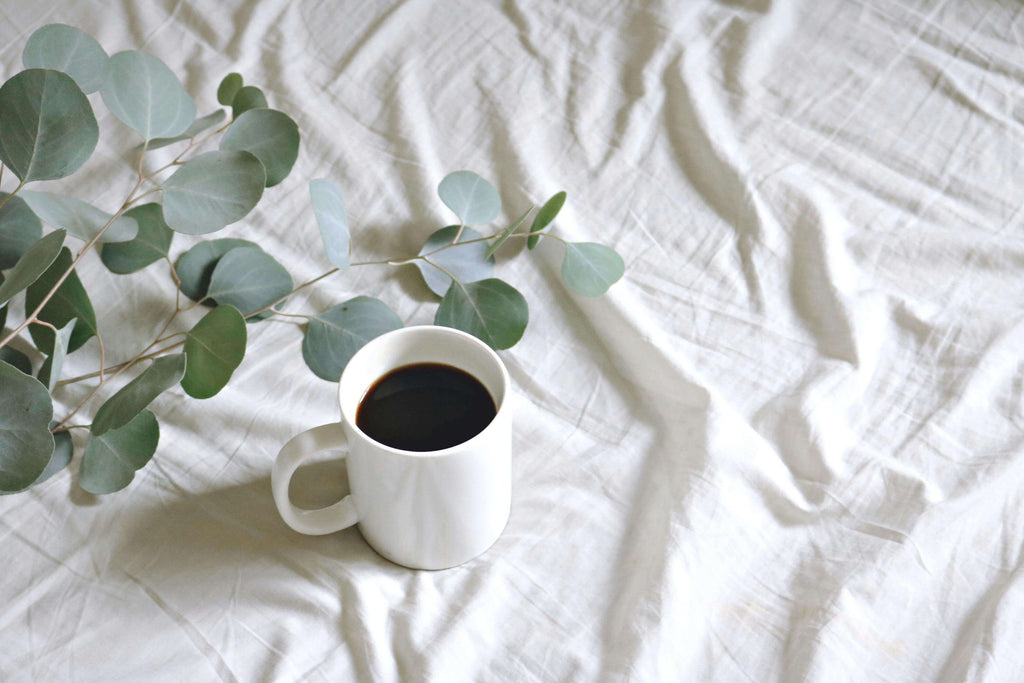You know the feeling? It can creep up on you without warning and leave you wondering why the heck you feel like sleeping after you’ve had a cup of your favorite coffee not so long ago.
Well, today, you’re getting your answers. In this article, we’re tackling all the potential reasons as to why you may feel like taking a nap after drinking coffee. If it doesn’t make much sense to you now, stick around. Sometimes, it’s a matter of a few simple life changes to avoid a coffee crash.
CAFFEINE MAKES ME TIRED: Key Takeaways
- Caffeine blocks receptors for adenosine, a sleep-inducing molecule. However, this blockade is temporary, leading to a buildup of adenosine and a later crash.
- Sugar crashes from added sweeteners, dehydration from not drinking enough fluid, and even stress responses in some people can all contribute to post-coffee drowsiness.
- Tips to avoid coffee-related sleepiness include finding your caffeine sweet spot, choosing less sugary options, and adjusting your coffee habits based on your body's response.
Why Coffee Makes Me Sleepy?
If you feel like it’s illogical for coffee to make you tired and sleepy, you’re not alone. In fact, we’re inclined to guess that most people would arrive at this very conclusion.
It turns out there are quite a few potential reasons why coffee makes you sleepy. Let’s explore them!
Adenosine Hit
Adenosine is a very important molecule. It is naturally produced by the body and is responsible for that feeling of sleepiness you usually get in the evening.
Guess what caffeine does? Even if you don’t know all the technicalities, you know that coffee is a stimulant.
It’s because caffeine blocks adenosine receptors, preventing the molecule from doing its job. This is why coffee increases alertness and “wakes you up” in the morning.
But sometimes, this mechanism can backfire. When caffeine wears off, you might feel the effects of adenosine buildup, which hits you with double the force. Thus making you feel tired.
What can you do to prevent that from happening? Experts recommend taking care of a good night's sleep. Getting enough quality rest is crucial for your overall health, and it can also reduce the risk of adenosine cumulating and hitting you when least expected.

Stress
Lack of sleep is never good for your body, and the same can be said about stress. When you feel anxious, your cortisol levels increase. The stress hormone is meant to prepare you for a fight or escape, which is why it makes you more alert.
But, again, once the cortisol wears off, that’s when fatigue hits you. Do you know what can increase your cortisol levels? Caffeine. This is why you may feel a similar type of crash from it wearing off as when you do in the evening after a stressful day.
In our expert opinion, it’s always good to observe how you feel after drinking coffee. While it might be a somewhat difficult transition, sometimes switching to the decaf options may prove to be effective in eliminating the cortisol swing.
Underlying Health Issues
Certain medical conditions can make you more sensitive to the effects of caffeine. These conditions often involve heightened anxiety or disrupted sleep patterns. Some examples include:
- Anxiety Disorders: Caffeine can exacerbate anxiety symptoms, leading to restlessness, difficulty sleeping, and fatigue.
- Insomnia: People with insomnia may find that caffeine interferes with their ability to fall asleep and stay asleep.
- Heart Palpitations: Caffeine can trigger heart palpitations, especially in individuals with underlying heart conditions.
- Gastrointestinal Disorders: Caffeine can irritate the gastrointestinal tract, leading to symptoms like heartburn, acid reflux, and irritable bowel syndrome.
Dehydration
You've probably heard that coffee can cause dehydration, but don't place the blame solely on your favorite morning beverage yet. While it's true that caffeine, a primary component of coffee, has a mild diuretic effect, this alone is not enough to cause dehydration.
The diuretic effect of caffeine means it can slightly increase the frequency of your bathroom visits, leading to some fluid loss. However, the amount of fluid you consume with your coffee generally compensates for this loss. In essence, the water in your coffee helps to offset the diuretic effect, maintaining your overall hydration levels.
For most people, coffee does not cause dehydration. Instead, it can be a hydrating beverage when consumed as part of a varied diet. If you enjoy your daily cups of coffee, you can continue to do so without worrying about dehydration, as long as you maintain good fluid intake throughout the day.

Sugar Crash
If you find yourself asking, ‘Why does drinking coffee make me tired?’ maybe it’s not coffee at all that is to blame. Maybe it’s what you add to your cup of aromatic, classic coffee.
Add-ons like sugar, sweeteners, honey, or various syrups can be responsible for elevated insulin levels in your blood. It’s a natural reaction of your body to increased sugar consumption. Insulin helps lower blood sugar, which, in turn, can manifest itself in sleepiness and weariness.
There are other symptoms of low glucose levels that you may notice, such as increased irritability, anxiety, or even dizziness.
If those symptoms are prevalent, you may benefit from doctor consultation. In the meantime, you may want to try to avoid sugar in your morning cup of joe and see how you feel with that change. It might not be the easiest, but we encourage you to try it.
You can switch to one of Angelino’s Coffee flavored coffees that have no added sugar or sweeteners but still offer you a delicious and flavorful experience. Whether you’re a fan of simple yet classic vanilla or sweet, irresistible caramel, we’ve got some great options for you!

High Caffeine Tolerance
Finally, the reason why you don’t feel as alert and ready to conquer the day after having your coffee as you once did might be related to your caffeine tolerance.
It’s a similar process as in the case of other substances. Some theorize that through regular exposure, it’s possible to build up a caffeine tolerance, therefore reducing the effects caffeine has on you.
Still, the research results are somewhat inconclusive in that matter. Some studies point to this correlation (like this 2019 study), and some offer contradicting results (like this 2001 research paper). We still need more research done on a matter to prove the existence of caffeine tolerance.
Why Does Caffeine Make Me Tired: Tips to Avoid the Drowsiness
Now that we know potential reasons why coffee makes you sleepy, we can focus on solutions. Or, really, give you a quick rundown of what we’ve talked about in this article.
Let’s see what kind of solutions to this problem we can brew together!
Find Your Sweet Spot
Coffee is our life, so you can really trust us when we say that sometimes moderate coffee intake is the way to go. It’s all about finding the sweet spot for you, but starting small is usually what’s gonna give you the best results.
If you feel tired after drinking coffee, it might mean that you’ve been neglecting your night’s sleep, which is never good. Try to take care of your needs before you drink another cup of coffee to get you out of the slumber. As we explained above, drinking excessive amounts of caffeine can sometimes magnify tiredness instead of reducing it.
Stay Hydrated
Another good strategy is to mind your daily water intake. Based on our personal experience and research, we can conclude that coffee won’t dehydrate you unless you drink very little fluid during the day.
Remember – dehydration can cause weariness and also is not good for your health and well-being. Grab your cup and fill it up!
Tips for Staying Hydrated
To ensure you're staying hydrated, consider the following tips:
- Drink water regularly: Aim to drink water throughout the day, even when you're not thirsty.
- Eat hydrating foods: Fruits and vegetables, such as watermelon, cucumber, and strawberries, have a high water content.
- Use a water tracking app: Many apps can help you monitor your daily water intake.
- Flavor your water: Add fruits, herbs, or a splash of juice to your water to make it more appealing.
- Limit caffeine and alcohol: While moderate coffee consumption is generally safe, excessive intake can contribute to dehydration. Alcohol is also a diuretic and can lead to dehydration.
Less Sugar for the Win
Last but not least, we love sweet coffee drinks like anybody else. However, those who come down hard from the caffeine crash may want to consider adding a little bit less sweetener to their coffee to avoid those considerable insulin jumps.
But fear not! There’s a whole world of wonderful coffee add-ons that aren’t just cream and sugar. A pinch of salt, a dash of cinnamon or cardamom, and just a little bit of cocoa powder can go a long way. Craft delicious coffee drinks to wake your senses without the addition of sugar, and enjoy your afternoons sugar crash-free.
Enhance Your Coffee with Healthy Additions
To elevate your daily coffee ritual, consider adding wholesome ingredients. A sprinkle of cinnamon can add warmth and flavor to your coffee. It's also packed with antioxidants and may help regulate blood sugar levels. Cocoa powder transforms your coffee into a rich, chocolatey treat, packed with antioxidants and beneficial for heart health.
For a healthier twist, opt for low-fat or non-dairy milk alternatives like almond, oat, or soy milk to reduce calorie and saturated fat intake. These simple additions can significantly enhance the nutritional profile of your coffee, making it a more wholesome and satisfying beverage.
Why Does Coffee Put Me To Sleep – Wrap-Up
This is where we end this dive into the topic of coffee-induced sleepiness. Hopefully, whenever you find yourself asking, ‘Why does coffee make me more tired?’ you’ll have a better idea of where to look for the answers.
Are you fascinated by the world of coffee just like we are? Be sure to visit Angelino’s Blog for more interesting articles, heavenly coffee recipes, and helpful tutorials. Whatever you need, we’re your coffee experts waiting to deliver the answers!
See you soon!



